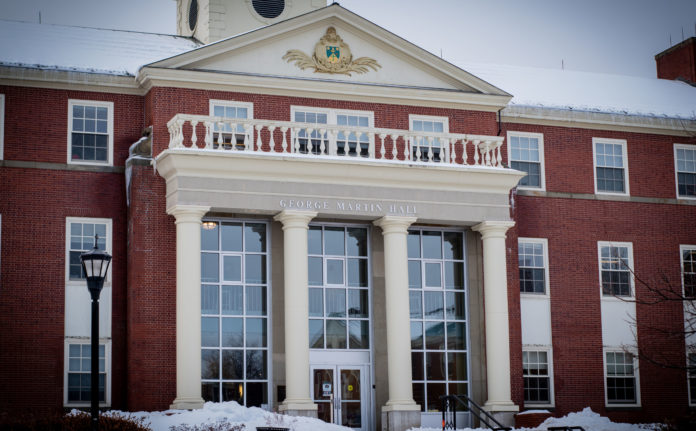
Faculty and staff members at St. Thomas University now have the option to move their pension investments into fossil fuel-free funds.
Matt Robinson, a member of the Faculty Association of the University of St. Thomas (FAUST) environment committee, took three weeks out of his six-month sabbatical during the winter semester of 2021 to research whether or not fossil fuel-free pension investments were even feasible.
He looked for investments that could produce a return and were not just “greenwashing” — a marketing strategy that falsely presents a product as environmentally sustainable.
“What I found through that research is that it is certainly possible to divest of fossil fuel and produce sufficient return for retirement,” said Robinson.
“I presented to the annual general meeting in April of 2021 and as a result of that presentation, there was a unanimous vote by the union to pursue the possibility.”
Over the past few years, the FAUST environment committee and pension advisory committee worked together to add environmentally sustainable options to the university’s pension plan.
On a list of funds provided through Canada Life, the company managing university pensions, STU faculty and staff can choose from three fossil fuel-free funds: RBC Global Equities, a Canadian equities fund from Jarislowsky Fraser and a Jarislowsky Fraser bond.
Robinson said the faculty and staff response will not be clear until the STU pension advisory committee releases its quarterly report around May, which outlines how much capital has been invested in these new funds.
“I think there is a critical mass of faculty who will be instantly on board and I think it’s probably not an insignificant number,” he said.
Robinson said while these updates are not only more socially responsible, they are also forward-thinking, as climate change and the Russian invasion of Ukraine make fossil fuels a more volatile investment.
He also recognized the student movement on campus calling on the university administration to divest the STU’s endowment fund, an amount of invested capital, from fossil fuels.
“I’d love to see the university find a way to divest the endowment of fossil fuels,” said Robinson.
In a university press release, Janice Harvey, a professor in the environment and society program and member of the FAUST environment committee, said diverting funds will not stop climate change, but it will at least reduce STU’s complicity in it.
“It also sends a powerful message to our students — that we care about the future they will inherit and are prepared to put our money where our mouth is,” said Harvey in the release.
